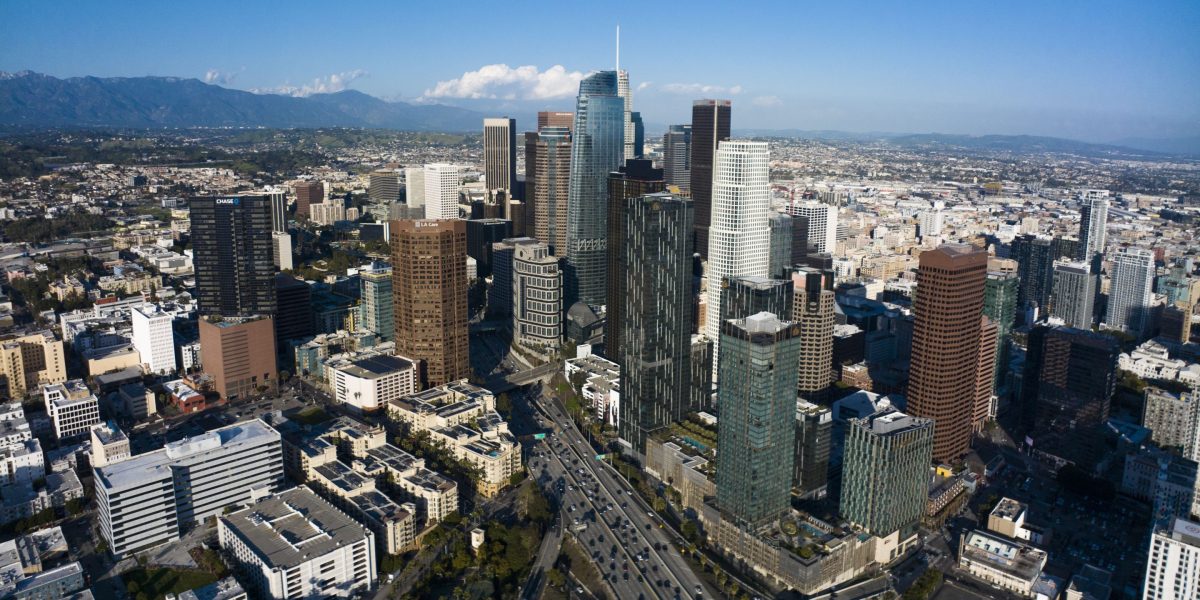With almost 30% of downtown LA office space available for lease or sublease, the value of the 62-story Aon Center plummeted.
Good. Fuck em.
Gotta start turning these spaces into housing. I know they’re not all easily converted, or it might have to be large high-end units, but more available homes in any category brings the prices down for all the categories.
This concept / discussion is going mainstream in the designer community. There was a prominent article in a recent magazine the serves the commercial steel association discussing the ins and outs of conversion. There are technical barriers, but they’re trivial compared to the political and capitalist ones.
I’d argue this has already happened, and we’re in a “phase 3” of this. When everyone emptied offices during covid, many buildings assumed people would flood back at some point, and so they took the opportunity to get loans and finance office upgrades. The office workers never came back, so some got more loans and converted to multifamily. Even then, the trend has been for people to move out of cities, so they didn’t get the prices they needed for those units. It’s a fraction of what they were charging for office space.
This has played out over 3 years now, and it’s finally come to a head. Buildings are defaulting on their loans more and more. Meanwhile, the municipalities have not dropped their tax assessments so the taxes on these buildings is make them unprofitable to keep. There are some foreign companies with deep pockets buying properties at pennies on the dollar. But what will they do with it to make it profitable? Let that play out, and eventually banks will turn more and more properties over to the local government. I think we’re going to see a market where large amounts of city real estate is owned by cities. That will be expensive to maintain, so wrecking balls and greenspace will be an attractive choice.
If the city owns them an they’re set up for housing, that should lead to them being used to house the unhoused. Probably won’t, but should.
This started happening in Canary Wharf a long time before covid. Businesses started consolidating offices by forcing hot desking and work from home days. The outer office buildings started converting to super expensive homes.
Its funny because as someone renting a tiny room in a shared flat with no space for a desk, and tbh just thinking its normal to be in the office 5 days, I was livid that I lost my desk, so hated it. Now, I live much further out and just took a job that is 2 days mandatory in the office which I had to really think if it was worth it compared to my 1 day optional!
I looked at the prices back then out of interest and they were insane, and rental prices were ridiculous too as a result. I have a feeling that they were all bought by “investors" (ie money laundering, especially by Russians) but no proof or anything to back it up, although seen lots of news article suggesting that is the case.
You’re on to something but it isn’t money laundering. It’s the Chinese government and Chinese investors looking to offload their money into another market and in goods that the Chinese government can’t easy take from them. I guess maybe that could be considered money laundering, even though it isn’t illegal. I started noticing it a handful of years ago, right before covid. China itself is also investing into other underdeveloped countries hoping to have a hand on them when they start developing more. Particularly Africa.
The whole commercial market has been inflated for decades. Not just offices but shops too. Companies who refuse to lower rents, because it would lower the value of their property, despite it being empty for months or even years.
It’ll be interesting to see if it finally crashes.
I do hope they don’t simply deregulate and turn these properties into overpriced housing. They’re often unsuitable for that purpose.
Part of the problem is that their mortgage usually sets a minimum price per square foot. That means that if the market crashes, the landlords can’t lease for market price without getting their investors to approve. That’s part of the reason why there’s so much empty space, because prices haven’t come down much.
Also I’d imagine because downtown LA is seriously dangerous
What are you talking about? Cool it with the imbibing of scum-quality news.
Your mom’s seriously dangerous
Do you live in LA? Of all the issues this area has, downtown where this tower is located isn’t the biggest concern…
Judging from their brand new account probably not. The city astroturfing accounts have found their way to lemmy.
More discussion can be found at the OP:










